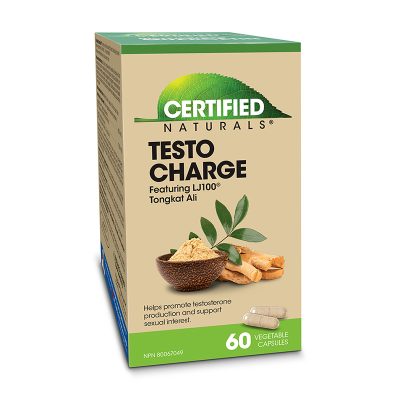Postbiotic Immune Formula
$39.99
Certified Naturals™ Postbiotics for immune health and the reduction of cold and flu symptoms.
60 Veg Capsules
NPN: 80107967
Certified Naturals™ Certified Naturals™ Postbiotic Immune Formula Capsules
What are…postbiotics?
Postbiotics are not living microorganisms like probiotics. In fact, they are not alive at all. Postbiotics are inactivated microorganisms that can provide numerous health benefits including support of the microbiome. In the past, postbiotics have been referred to as “zombie probiotics” or “ghost biotics”. As of 2021, there is an official definition of “postbiotic”. The International Scientific Association for Probiotics and Prebiotics (ISAPP) has defined postbiotics as a “preparation of inanimate microorganisms and/or their components that confers a health benefit on the host”.
Postbiotics are not new. In the 1980’s, researchers discovered that heat-killed Lacidophilus had a beneficial effect on digestive health.1 Years later, evidence emerged that the metabolites released from heat-inactivated bacteria delivered immune modulating benefits to humans by helping the microbiome defend against pathogens. Postbiotics are now being researched for their anti-inflammatory, antiobesogenic, antihypertensive, hypocholesterolemic, antiproliferative and antioxidant benefits. Fermented foods, like probiotics, are becoming widely consumed by health seekers. Drinks like kombucha and kefir, foods like yogurt, natto and tempeh all contain metabolites similar to those found in postbiotics and tout health benefits. Are all fermented foods considered to be postbiotics? The answer is no. A true postbiotic must follow the officially accepted definition of postbiotic and provide benefits to the host. A fermented ingredient called EpiCor™ fits that definition perfectly.
Postbiotics vs. Probiotics: What are the advantages?
Postbiotics and probiotics are both beneficial to human health, but there are some differences between the two:
-
Stability: Because postbiotics are not alive, stability both in a capsule or in the extreme conditions of the gut is not a concern as it is for probiotics. Refrigeration is never needed for postbiotics
-
Predictability: Postbiotics such as EpiCor™ are fermented and manufactured in controlled, oxygen-free conditions (i.e., outside the human body), which guarantees a certain fingerprint of post-fermentation metabolites. Probiotic-generated metabolites generated in the human body, on the other hand, depend on microbe survival and propagation and several other biological variables, which makes predictable metabolite creation difficult.
- Resources: Postbiotics don’t compete for necessary food (fiber, nutrients) like probiotic strains do. Different probiotic strains can be actively competing against one another.
-
Safety: With probiotic supplements, there is a small risk that the live bacteria may be absorbed through the gastrointestinal lining and enter the bloodstream in individuals with poor barrier lining. There is no risk of this with postbiotic supplementation, which is critical for those who are immunosuppressed and are unable to take probiotics.
-
Tolerability: Since every individual has a unique microbiome, each of us tolerates individual probiotics to varying degrees. However, since most postbiotics (like EpiCor™) interact directly with the gut lining, inconsistency is unlikely to be as extreme as with probiotics.
Recommended use: Helps maintain immune system. Helps to reduce the incidence of cold and flu symptoms during the winter months. (Traditionally) used in Herbal Medicine to help relieve symptoms of colds and flus (such as coughs, sore throat and mucus buildup (catarrh) of the (upper) respiratory tract). (Traditionally) used in Herbal Medicine to promote sweating (diaphoretic) to help relieve fever (in cases of common colds, flus). (Traditionally) used in Herbal Medicine (as an alterative) to help remove accumulated waste products via the kidneys, skin and mucus membranes. (Traditionally) used in Herbal Medicine to help relieve joint pain associated with conditions such as arthritis. An antioxidant that helps to support good health.
Only logged in customers who have purchased this product may leave a review.








Reviews
There are no reviews yet.